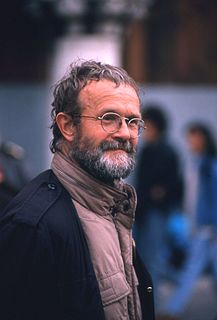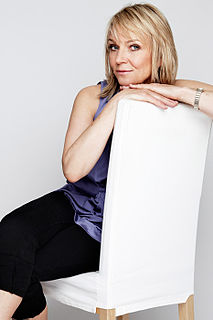A Quote by Marina Warner
I do not think commodities are taken for granted. One of the convergences in time I noticed, and to me seemed very important, was the emergence of paper money. There had been permissionary notes, exchanging money by writing it, but there was no duplicated form of guaranteeing an exchange.
Related Quotes
Experience, however, shows that neither a state nor a bank ever have [sic] had the unrestricted power of issuing paper money without abusing that power; in all states, therefore, the issue of paper money ought to be under some check and control; and none seems so proper for that purpose as that of subjecting the issuers of paper money to the obligation of paying their notes either in gold coin or bullion.
Money is different from all other commodities: other things being equal, more shoes, or more discoveries of oil or copper benefit society, since they help alleviate natural scarcity. But once a commodity is established as a money on the market, no more money at all is needed. Since the only use of money is for exchange and reckoning, more dollars or pounds or marks in circulation cannot confer a social benefit: they will simply dilute the exchange value of every existing dollar or pound or mark.
I also made two very important discoveries as time went on. In the first place, I discovered that making money was easy. I had been led to believe that money and possessions would insure me a life of happiness and peace of mind. So that was the path I pursued. In the second place, I discovered that making money and spending it foolishly was completely meaningless. I knew that this was not what I was here for, but at that time I didn't know exactly what I was here for.
I have endeavoured to show that the ability to pay taxes depends, not on the gross money value of the mass of commodities, nor on the net money value of the revenue of capitalists and landlords, but on the money value of each man's revenue compared to the money value of the commodities which he usually consumes.
Let us consider the actual, worldly Jew - not the Sabbath Jew, as Bauer does, but the everyday Jew. ... What is the worldly religion of the Jew? Huckstering. What is his worldly God? Money. Money is the jealous god of Israel, in face of which no other god may exist. Money degrades all the gods of man - and turns them into commodities. The bill of exchange is the real god of the Jew. His god is only an illusory bill of exchange. The chimerical nationality of the Jew is the nationality of the merchant, of the man of money in general.
To walk in money through the night crowd, protected by money, lulled by money, dulled by money, the crowd itself a money, the breath money, no least single object anywhere that is not money. Money, money everywhere and still not enough! And then no money, or a little money, or less money, or more money but money always money. and if you have money, or you don't have money, it is the money that counts, and money makes money, but what makes money make money?
It never seemed important to me that my photos be published. It's important that I take them. There were periods where I didn't have money, and I would imagine that someone would come to me and say: 'Here is money, you can go do your photography, but you must not show it.' I would have accepted right away. On the other hand, if someone had come to me saying: 'Here is money to do your photography, but after your death it must be destroyed,' I would have refused.
I'm a product of state schools. I had a working-class family. We had no books. I was the first to go to college. But I didn't really think about it, or about making money. I was just going to be an artist, and I've been fortunate. I've never had to work for anybody nor have I had to write for money. Maybe that's another reason that I've been able to be productive. I haven't had to use my writing to make a living.
I am certain that over the course of your own life, you have noticed that people's rooms reflect their personalities. In my room, for instance, I have gathered a collection of objects that are important to me, including a dusty accordion on which I can play a few sad songs, a large bundle of notes on the activities of the Baudelaire orphans, and a blurry photograph, taken a very long time ago, of a woman whose name is Beatrice. These are items that are very precious and dear to me.






































